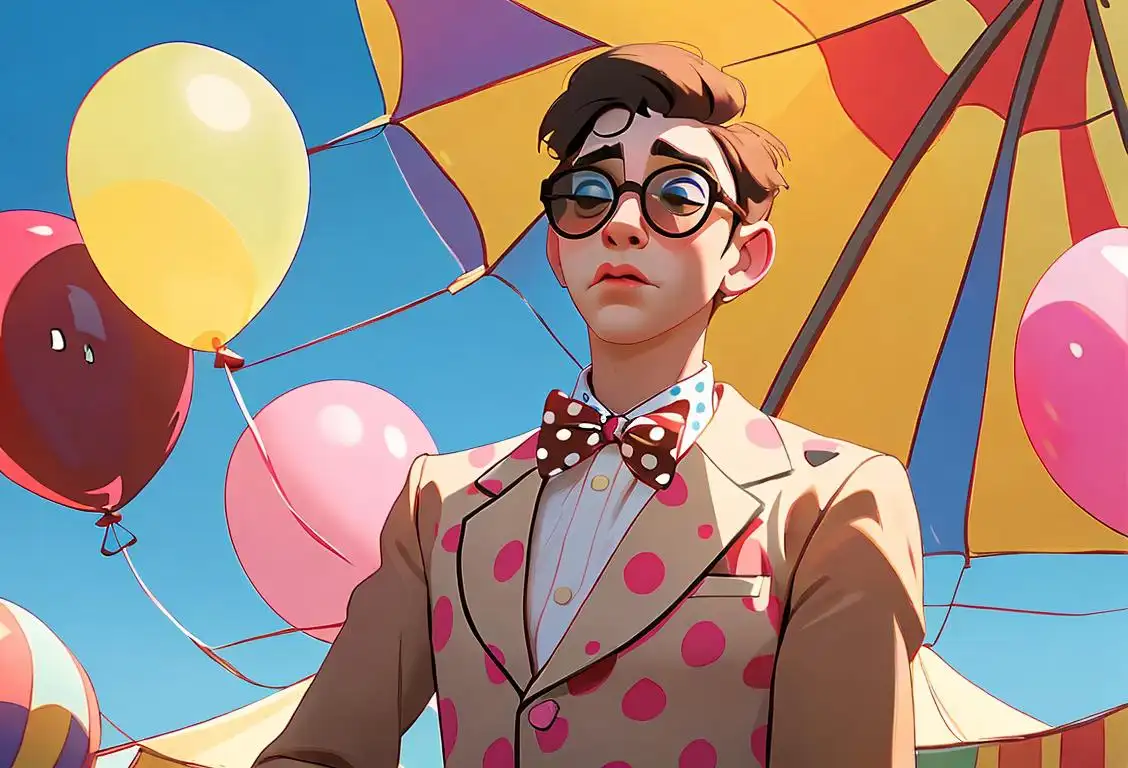National Absurdity Day

Welcome, my fellow lovers of absurdity! Today we're diving deep into the wondrous realm of National Absurdity Day. Buckle up and get ready for a wild ride through the land of the nonsensical and the bizarre!
When is Absurdity Day?
It's national absurdity day on the 20th November.
A Brief History of National Absurdity Day
Every year on November 20th, we celebrate National Absurdity Day, a day dedicated to embracing the absurd and letting go of the logical and predictable. But how did this wacky holiday come to be? Let's take a little journey through its internet history.
Online, there have been a whopping 1582 mentions of National Absurdity Day, with the highest number of mentions recorded on November 20th, 2020. It seems that every year, more and more people are embracing the joy of absurdity!
The Origins of Absurdity
Absurdity has been a part of human culture for centuries. From the nonsensical literature of Lewis Carroll to the surreal paintings of Salvador Dalí, we've always had a fascination with the strange and the illogical.
But it was the rise of the internet that truly gave absurdity a platform to flourish. Memes, viral videos, and social media challenges have all contributed to the spread of absurdity in the digital age. The internet has allowed us to connect with fellow absurdists from around the world and create a global community of nonsense-lovers.
How to Celebrate
So, how can you join in the festivities of National Absurdity Day? Here are a few ideas to get you started:
- Dress in the most absurd outfit you can find and strut your stuff down the street. Go wild with mismatched patterns, clashing colors, and accessories that make people question reality.
- Engage in some playful pranks and practical jokes. Just make sure they're harmless and bring a smile to the faces of those involved.
- Create your own absurd art. Whether it's a bizarre sculpture made from recycled materials or a whimsical painting that defies all logic, let your imagination run wild.
- Organize an absurdity-themed movie night with your loved ones. Watch films like Monty Python and the Holy Grail or The Lobster for a dose of surreal humor.
No matter how you choose to celebrate, remember that the goal is to let go of seriousness and embrace the joy of the ridiculous. So, go forth and be absurd, my friends!
History behind the term 'Absurdity'
18th Century
The Birth of Absurdity
The term 'absurdity' originated in the 18th century, deriving from the Latin word 'absurdus,' meaning 'out of tune' or 'unmusical.' It was first used in English to describe things that were illogical, contrary to reason, or lacking coherence. At this time, the concept of absurdity was primarily associated with the realm of philosophy and intellectual discussions about the nature of reality.
19th Century
The Absurd in Literature
In the 19th century, the concept of absurdity found its way into literature. Writers began to explore the absurdity of human existence and the meaninglessness of life through their works. One of the notable figures was the French author Albert Camus, whose novel 'The Stranger' (1942) portrayed a protagonist trapped in an indifferent and absurd world. This literary movement, known as existentialism, emphasized the absurdity of human condition and the individual's search for meaning in an irrational world.
20th Century
The Absurd in Theater
The 20th century witnessed a significant evolution of absurdity in the realm of theater. Playwrights like Samuel Beckett and Eugène Ionesco, among others, explored the themes of existential absurdity, disillusionment, and the breakdown of communication in their works. Beckett's play 'Waiting for Godot' (1953) is a prime example, depicting two characters waiting endlessly for someone who never arrives, highlighting the inherent meaninglessness of existence. This absurdist theater challenged traditional narratives and conventions, inviting audiences to question the absurdity of human existence.
21st Century
The Absurd in Pop Culture
In the 21st century, the notion of absurdity has permeated popular culture in various forms. Absurdist humor, characterized by nonsensical or illogical elements, has gained a significant following. Shows like 'Monty Python's Flying Circus' and 'The Mighty Boosh' embrace the absurd, employing surreal scenarios and wordplay to elicit laughter while challenging traditional comedic structures. The Internet has also played a role in promoting absurdity, with memes and viral videos often relying on unexpected or absurd elements for comedic effect. Today, absurdity continues to captivate audiences and serve as a tool for questioning established norms and conventions.
Did you know?
Did you know that the word 'absurd' actually comes from the Latin word 'absurdus,' which means 'out of tune'? So, in a way, when you embrace absurdity, you're embracing the beauty of being out of tune with the world's expectations!Tagged
awareness funFirst identified
18th November 2015Most mentioned on
20th November 2020Total mentions
1582Other days
Nurses Day
Former Prisoner Of War Recognition Day
Press Day
Handloom Day
Heroes Day
Memorial Day
Dance Day
Bestfriends Day
Liberation Day
Love Your Pet Day









